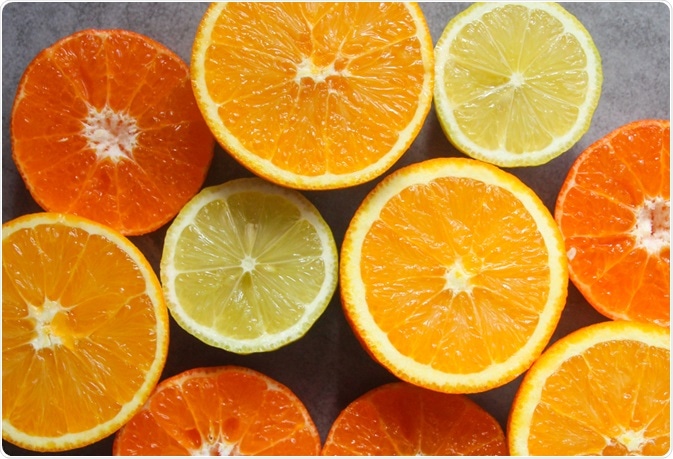Carotenoids are natural pigments commonly produced by many plants. They tend to absorb light wavelengths in the blue and green range, giving them a red or orange color. This is reflected in the color of particular foods, such as pumpkins, carrots, and egg yolks.

rontav | Shutterstock
Humans and all other mammals cannot synthesize carotenoids in the body, so a varied diet is the only way of obtaining these important nutrients.
Carotenoids were first chemically identified by Richard Willstätter in 1907. He classified them into their two families: xanthophylls and carotenes. Carotenes are hydrocarbons, while xanthophylls also contain oxygen. Xanthophylls are effectively the oxidation products of carotenes.
Vitamin A and vision
The carotenoids α-carotene, β-carotene, and β-cryptoxanthin are known as provitamin A carotenoids, as they can be converted in the body to retinol or vitamin A. Retinol (vitamin A) is a precursor to a similar molecule retinal, which has an important role in vision. Retinal is a component of rhodopsin, the main pigment found in rod cells and cone cells in the retina of the eye.
When light hits the photoreceptors in the eye (rod cells and cone cells), it stimulates rhodopsin and an electrical signal is sent to the brain to interpret what can be seen through the eye. Rhodopsin also activates a cascade of other reactions called the retinoid cycle. This cycle replenishes all the compounds that are needed for light to stimulate receptors in the eye.
Carotenoid structure and function
The carotenoid structure consists of alternating double and single bonds which allows them to absorb visible light.
Carotenoids such as lutein, zeaxanthin, and meso-zeaxanthin are mainly found in the macula in the center of the retina and absorb up to 90% of blue light. The absorption of this light can reduce the oxidative damage that occurs to this essential part of the eye.
Carotenoids and eye health
Age-related macular degeneration is the main cause of blindness in the older generation. It is caused by chronic damage to the macula by exposure to blue light frequencies. Having carotenoids like lutein, zeaxanthin, and meso-zeaxanthin in the diet can prevent such diseases.
Cataracts is another common disease in older people which occurs when proteins in the eye’s lens are damaged by oxidation and UV light. This leads to cloudiness in the eye and visual impairment.
Studies have shown that people who have lutein and zeaxanthin-rich diet are less likely to develop cataracts in their lifetime. Lutein and zeaxanthin supplements have been shown to reduce cases of certain diseases that affect eyesight.
Although carotenoids have no formal recommended daily intake (because they are not directly involved in any major metabolic pathway(, supplementation can reduce certain eye diseases.
How can carotenoids lead to vitamin A deficiency?
While carotenoids themselves are not directly associated with a deficiency state, they can prevent other conditions. Vitamin A deficiency is one of the most common malnutrition problems worldwide and is the biggest cause of preventable blindness in children.
Pro-vitamin A carotenoids in the diet can maintain the levels of vitamin A in the body. If there is not enough carotenoids in the diet, people develop vitamin A deficiency causing severe visual impairment and blindness in children.
Dietary sources of carotenoids
One solution to this is using biotechnology in agriculture, in the form of golden rice that is white rice which has been genetically modified to contain a higher content of β-carotene. β-carotene is a pro-vitamin A carotenoid which can be broken down into two vitamin A molecules.
Golden rice is a simple, cheap solution to prevent visual impairment due to vitamin A deficiency, especially in countries like South-East Asia where rice is one of the main foods. The only drawback to this is the public wariness of genetic modification, but as education can lessen this issue.
Further Reading
Last Updated: Nov 22, 2018